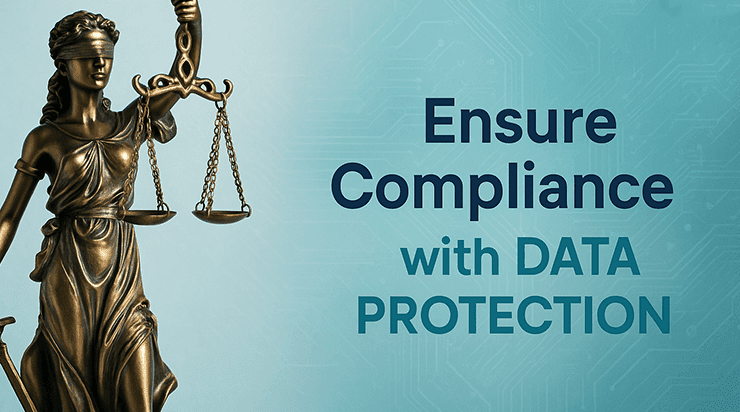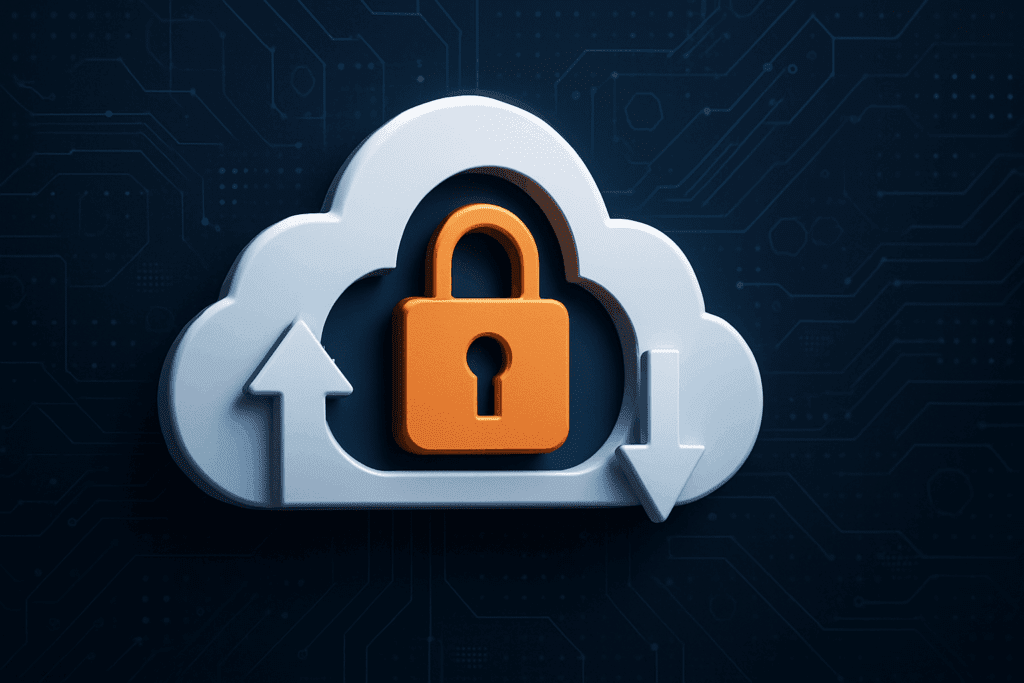In the digital era, businesses are constantly upgrading and replacing IT equipment to keep up with the latest technologies. As companies upgrade their systems, old hardware—whether it’s laptops, servers, or mobile devices—can pile up. Improper disposal of this equipment can expose businesses to data breaches, regulatory fines, and environmental disturbance. That’s why an IT Asset Disposition (ITAD) strategy is important.
An ITAD strategy focuses on securely disposing of old IT assets while safeguarding sensitive business data, ensuring compliance with regulatory requirements, and reducing your environmental footprint.
What Is ITAD and Why Does It Matter?
IT Asset Disposition (ITAD) refers to the process of securely disposing of IT assets such as computers, servers, smartphones, and storage devices that have reached the end of their lifecycle. This process ensuring that all data is erased or destroyed to prevent unauthorized access. ITAD ensures compliance with data protection laws while minimizing the risks associated with data breaches and identity theft.
An effective ITAD strategy goes hand in hand with risk management, security, and sustainability goals, providing businesses with numerous benefits beyond just data destruction.
10 Key Signs Your Business Needs an ITAD Strategy
Without a structured IT Asset Disposition (ITAD) strategy, your business could face serious risks, including data breaches, compliance violations, and environmental harm.
If you notice any of the following signs, it may be time to implement or improve your ITAD strategy. Let’s take a look at the 10 key signs that indicate your business needs an effective ITAD plan to protect your data, reduce risks, and stay compliant.
1. You’re Frequently Upgrading or Replacing Your IT Equipment
Businesses that regularly upgrade their technology face the challenge of disposing of outdated hardware securely. Every time you replace a computer, phone, or server, the disposal process becomes critical. Without a formal ITAD strategy, old equipment could end up in a landfill or, worse, still contain sensitive data that can be easily recovered.
Why ITAD is Essential:
An ITAD strategy ensures that your old devices are securely wiped of data or destroyed, preventing any unauthorized access. Using industry-standard data destruction methods such as NIST 800-88 guarantees that your business stays safe from data breaches.

2. You Are Concerned About Data Security Risks
Even if you delete files or format a device, data can often be recovered with the right tools. Sensitive business data, customer information, intellectual property, and confidential communications are all vulnerable if not securely erased or destroyed.
Why ITAD is Essential:
With an ITAD strategy, your outdated equipment undergoes thorough data destruction methods like degaussing or physical destruction. This ensures that data is permanently erased, reducing the risk of a data breach and protecting your business from cybersecurity threats.
3. Your Business Is in a Regulated Industry (Healthcare, Finance, etc.)
If your business operates in industries such as healthcare (HIPAA), finance (PCI DSS), or legal sectors (GDPR), you must follow strict data protection and privacy regulations. Mishandling data disposal can result in substantial penalties and legal issues.
Why ITAD is Essential:
An ITAD strategy ensures that your company complies with all relevant regulations by securely destroying sensitive information and providing Certificates of Data Destruction. This compliance mitigates the risk of costly fines and ensures that your business adheres to industry standards.
4. You’re Storing Outdated Equipment Without a Clear Plan for Disposal
Old technology is often stored away in office closets, basements, or storage rooms. Over time, these devices accumulate, taking up space and becoming a potential security risk. The longer you hold onto old equipment, the higher the chance that sensitive data could fall into the wrong hands.
Why ITAD is Essential:
A solid ITAD strategy includes a disposal plan that ensures all outdated equipment is accounted for and securely processed. Whether it’s recycling old hard drives or securely disposing of old servers, having an organized approach eliminates clutter and reduces the risk of forgotten data exposure.

5. Your Business Is Growing and Scaling
As your business expands, so does your technology infrastructure. New employees bring new devices, and scaling operations means adding more servers, computers, and phones. If you don’t have a proper ITAD strategy, tracking and disposing of these assets becomes a challenge.
Why ITAD is Essential:
A comprehensive ITAD strategy makes asset management more efficient, ensuring that when old equipment needs to be replaced, it’s done so securely and in compliance with regulations. It also ensures that when your company grows, it can continue managing its IT assets without missing a step.
6. You’re Unsure About Your Current Data Disposal Practices
If your business has no formal plan for managing the disposal of IT assets, there’s a good chance that sensitive data is at risk. Common scenarios include employees improperly discarding old devices or equipment being sold without verifying that data has been wiped.
Why ITAD is Essential:
An ITAD strategy ensures that every device is properly tracked and securely disposed of. Working with certified ITAD providers guarantees that your data is wiped to industry standards and that the disposal process is fully documented for audit and compliance purposes.
7. You Want to Maximize the Value of Retired IT Assets
Old IT assets still hold value. Many devices, even if outdated, can be refurbished and resold, or parts can be harvested for reuse. If you don’t have an ITAD strategy, you may be losing out on potential revenue from assets that could be resold or repurposed.
Why ITAD is Essential:
A proper ITAD strategy doesn’t just dispose of old equipment—it can help recover value from it. Many ITAD providers offer asset recovery services, reselling functional equipment or harvesting valuable components to recoup some of the original investment.
8. You Want to Minimize Your Environmental Impact
E-waste is a growing environmental concern. Improper disposal of electronic devices can lead to harmful toxins leaking into the soil and water. Without a responsible disposal plan, your business could be contributing to environmental damage.
Why ITAD is Essential:
An eco-friendly ITAD strategy ensures that old equipment is recycled according to environmental standards, preventing e-waste from polluting the environment. Many certified ITAD providers adhere to R2 (Responsible Recycling) and e-Stewards standards, ensuring that your business is compliant with the best environmental practices.
9. Your Business Is Struggling with Compliance Audits
When it comes to handling sensitive data, you need to have a secure process in place for disposal. Without proper documentation of your asset disposal, you could fail a compliance audit, exposing your business to legal risks.
Why ITAD is Essential:
An ITAD strategy ensures that all assets are tracked, and their destruction is well-documented. By partnering with a certified ITAD provider, you get Certificates of Data Destruction and a documented chain of custody for each asset. This guarantees compliance with audit requirements and minimizes the risk of non-compliance.
10. Employees Are Using Personal Devices for Work (BYOD)
With the growing trend of Bring Your Own Device (BYOD), many employees use personal smartphones, laptops, or tablets for work. When these devices are no longer in use or are replaced, it’s crucial to ensure that business data is securely erased to prevent leaks.
Why ITAD is Essential:
An ITAD strategy ensures that any personal devices used for work purposes are properly wiped of business data when they are retired. This helps protect your company’s sensitive information, even if the devices are no longer under your control.
Frequently Asked Questions (FAQs)
1. How do I know if an ITAD provider is trustworthy?
Look for certifications such as R2 (Responsible Recycling) or e-Stewards, which ensure that the ITAD provider follows industry standards for secure data destruction and responsible recycling.
2. How does an ITAD strategy protect my business?
An ITAD strategy protects your business by ensuring that old devices are disposed of securely, with sensitive data wiped or destroyed, and compliance with legal and environmental regulations is maintained.
3. Can I recycle old hardware through an ITAD provider?
Yes, reputable ITAD providers offer eco-friendly recycling options to ensure that electronic waste is disposed of properly, minimizing environmental impact.

Conclusion:
Protect Your Business with a Solid ITAD Strategy
A comprehensive ITAD strategy is essential for any business that handles sensitive data. It protects your company from data breaches, regulatory fines, environmental harm, and financial losses while helping recover value from outdated assets. If any of the signs listed above apply to your business, it’s time to implement an ITAD strategy that secures your data, reduces risks, and ensures compliance.
If you’re ready to take the next step in securing your business’s IT assets, consider partnering with a certified ITAD provider that can guide you through the secure disposal process, maximize asset recovery, and help your business achieve its sustainability goals.









Not only will a network administrator keep you safe, but you will not have to waste as much time going through unwanted emails. Protect yourself before the inevitable happens.